 MABs currently approved for emergency use are: The emergency authorization of monoclonal antibodies offers health care providers another tool in combating the pandemic, said Patrizia Cavazzoni, M.D., acting director of the FDAs Center for Drug Evaluation and Research. Monoclonal antibody is a new experimental therapy for people at a higher risk of hospitalization due to COVID-19 and is available as part of an emergency use authorization from the Food and Drug Administration. Our service is free and we are here to help you. November 9, 2021. To receive monoclonal antibodies for treatment, you must have a positive test for COVID-19, have symptoms of COVID-19 and be within 10 days of when your symptoms began. COVID-19 monoclonal antibody treatments. Monoclonal antibodies for the treatment of COVID-19 patients: An umbrella to overcome the storm? How is monoclonal antibody therapy given? After the antibody infusion, Bob's symptoms continued to improve. However, an itchy throat is more commonly associated with allergies. And so its unlikely that most people who have antibodies are still contagious. Monoclonal antibodies are supplemental antibodies that can be administered early in the course of infection the first 10 days after symptoms commence to rapidly bind and kill the COVID virus. Last medically reviewed on September 21, 2022. In this article, we take a look at what monoclonal antibodies are and how they can be harnessed to treat COVID-19. "I was feeling like fever was coming on and had a headache. Healthline Media does not provide medical advice, diagnosis, or treatment.
MABs currently approved for emergency use are: The emergency authorization of monoclonal antibodies offers health care providers another tool in combating the pandemic, said Patrizia Cavazzoni, M.D., acting director of the FDAs Center for Drug Evaluation and Research. Monoclonal antibody is a new experimental therapy for people at a higher risk of hospitalization due to COVID-19 and is available as part of an emergency use authorization from the Food and Drug Administration. Our service is free and we are here to help you. November 9, 2021. To receive monoclonal antibodies for treatment, you must have a positive test for COVID-19, have symptoms of COVID-19 and be within 10 days of when your symptoms began. COVID-19 monoclonal antibody treatments. Monoclonal antibodies for the treatment of COVID-19 patients: An umbrella to overcome the storm? How is monoclonal antibody therapy given? After the antibody infusion, Bob's symptoms continued to improve. However, an itchy throat is more commonly associated with allergies. And so its unlikely that most people who have antibodies are still contagious. Monoclonal antibodies are supplemental antibodies that can be administered early in the course of infection the first 10 days after symptoms commence to rapidly bind and kill the COVID virus. Last medically reviewed on September 21, 2022. In this article, we take a look at what monoclonal antibodies are and how they can be harnessed to treat COVID-19. "I was feeling like fever was coming on and had a headache. Healthline Media does not provide medical advice, diagnosis, or treatment. 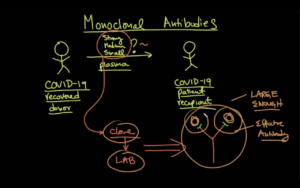 The treatment can also shorten how long COVID-19 symptoms last. (n.d.). Talk to your doctor if you are unsure what treatments you received or if you have more questions about getting a COVID-19 vaccine. I just felt that I had the sniffles or a head cold with a headache," says the 70-year-old kidney bean farmer. They attach to the spike proteins on the coronavirus and prevent it from entering your cells. You can receive monoclonal therapy if youve been vaccinated against COVID-19. It can help other treatments work more effectively and reduce the total time someone is sick with COVID-19. (2021). Monoclonal antibodies are supplemental antibodies that can be administered early in the course of infection the first 10 days after symptoms commence to rapidly bind and kill the COVID virus. Your tax-deductible donation funds lung disease and lung cancer research, new treatments, lung health education, and more. The problem is that our immune system takes two to three weeks to make good antibodies, Overton said. Monoclonal antibody treatment can help your body fight COVID-19. COVID-19 Vaccine: Key FDA Panel Supports Updated Annual Shots. "I called Bob at work and told him that I was taking the phone off the hook and going to bed," says the 67-year-old retired public health nurse. The decision was made because it is not expected to neutralize new Omicron subvariants. Whether you are a patient living with lung disease or a caregiver, join the Patient & Caregiver Network for timely education, support and connection.
The treatment can also shorten how long COVID-19 symptoms last. (n.d.). Talk to your doctor if you are unsure what treatments you received or if you have more questions about getting a COVID-19 vaccine. I just felt that I had the sniffles or a head cold with a headache," says the 70-year-old kidney bean farmer. They attach to the spike proteins on the coronavirus and prevent it from entering your cells. You can receive monoclonal therapy if youve been vaccinated against COVID-19. It can help other treatments work more effectively and reduce the total time someone is sick with COVID-19. (2021). Monoclonal antibodies are supplemental antibodies that can be administered early in the course of infection the first 10 days after symptoms commence to rapidly bind and kill the COVID virus. Your tax-deductible donation funds lung disease and lung cancer research, new treatments, lung health education, and more. The problem is that our immune system takes two to three weeks to make good antibodies, Overton said. Monoclonal antibody treatment can help your body fight COVID-19. COVID-19 Vaccine: Key FDA Panel Supports Updated Annual Shots. "I called Bob at work and told him that I was taking the phone off the hook and going to bed," says the 67-year-old retired public health nurse. The decision was made because it is not expected to neutralize new Omicron subvariants. Whether you are a patient living with lung disease or a caregiver, join the Patient & Caregiver Network for timely education, support and connection. 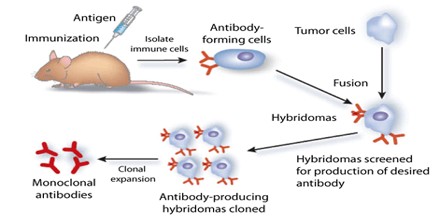 Following the infusions, Bob and Joyce were required to quarantine as they could potentially still shed the virus to others. "I didn't pay much attention to it. WebBenefits of antiviral therapy. That said, its a good idea to talk with your obstetrician before getting treatment. You will now receive email updates from the American Lung Association. Lloyd EC, et al. Effective use of monoclonal antibodies for treatment of persistent COVID-19 infection in a patient on rituximab. The U.S. Department of Health and Human Services has a dedicated call center (1-877-332-6525) to answer questions and provide locations of therapeutic The coronavirus cannot enter cells with a monoclonal antibody on its protein spikes. The U.S. Department of Health and Human Services has a dedicated call center (1-877-332-6525) to answer questions and provide locations of therapeutic Treatments, which include monoclonal antibodies (mAbs), should be administered as soon as possible after a positive COVID-19 test, and within 10 days of when your symptoms began. Complete qualifications for monoclonal antibody treatment generally include: Specific healthcare facilities might have additional requirements, such as age, for administering monoclonal antibody therapy. Learn more. Healthline has strict sourcing guidelines and relies on peer-reviewed studies, academic research institutions, and medical associations. Lori says that their experience is consistent with other patients. Get involved today by raising funds and awareness in your community. WebGetting vaccinated is a priority, and you are able to get vaccinated once your illness is over.
Following the infusions, Bob and Joyce were required to quarantine as they could potentially still shed the virus to others. "I didn't pay much attention to it. WebBenefits of antiviral therapy. That said, its a good idea to talk with your obstetrician before getting treatment. You will now receive email updates from the American Lung Association. Lloyd EC, et al. Effective use of monoclonal antibodies for treatment of persistent COVID-19 infection in a patient on rituximab. The U.S. Department of Health and Human Services has a dedicated call center (1-877-332-6525) to answer questions and provide locations of therapeutic The coronavirus cannot enter cells with a monoclonal antibody on its protein spikes. The U.S. Department of Health and Human Services has a dedicated call center (1-877-332-6525) to answer questions and provide locations of therapeutic Treatments, which include monoclonal antibodies (mAbs), should be administered as soon as possible after a positive COVID-19 test, and within 10 days of when your symptoms began. Complete qualifications for monoclonal antibody treatment generally include: Specific healthcare facilities might have additional requirements, such as age, for administering monoclonal antibody therapy. Learn more. Healthline has strict sourcing guidelines and relies on peer-reviewed studies, academic research institutions, and medical associations. Lori says that their experience is consistent with other patients. Get involved today by raising funds and awareness in your community. WebGetting vaccinated is a priority, and you are able to get vaccinated once your illness is over. 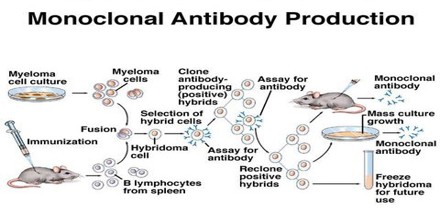 Frequently asked questions about monoclonal antibody therapy, covid19treatmentguidelines.nih.gov/therapies/anti-sars-cov-2-antibody-products/anti-sars-cov-2-monoclonal-antibodies/, aspr.hhs.gov/COVID-19/Therapeutics/Products/Bebtelovimab/Pages/default.aspx, fda.gov/news-events/press-announcements/coronavirus-covid-19-update-fda-authorizes-new-monoclonal-antibody-treatment-covid-19-retains, acog.org/clinical-information/physician-faqs/covid-19-faqs-for-ob-gyns-obstetrics, cv.nmhealth.org/covid-19-monoclonal-antibody-patient-treatment-info/, jamanetwork.com/journals/jama/fullarticle/2776307, upmc.com/coronavirus/monoclonal-antibodies, cdc.gov/coronavirus/2019-ncov/need-extra-precautions/people-with-medical-conditions.html, ncbi.nlm.nih.gov/pmc/articles/PMC8479899/, nichd.nih.gov/newsroom/news/082521-SARS-CoV-2. While experts agree that getting the vaccine is the best way to prevent COVID-19, we are still researching treatment options if you do, in fact, get sick.
Frequently asked questions about monoclonal antibody therapy, covid19treatmentguidelines.nih.gov/therapies/anti-sars-cov-2-antibody-products/anti-sars-cov-2-monoclonal-antibodies/, aspr.hhs.gov/COVID-19/Therapeutics/Products/Bebtelovimab/Pages/default.aspx, fda.gov/news-events/press-announcements/coronavirus-covid-19-update-fda-authorizes-new-monoclonal-antibody-treatment-covid-19-retains, acog.org/clinical-information/physician-faqs/covid-19-faqs-for-ob-gyns-obstetrics, cv.nmhealth.org/covid-19-monoclonal-antibody-patient-treatment-info/, jamanetwork.com/journals/jama/fullarticle/2776307, upmc.com/coronavirus/monoclonal-antibodies, cdc.gov/coronavirus/2019-ncov/need-extra-precautions/people-with-medical-conditions.html, ncbi.nlm.nih.gov/pmc/articles/PMC8479899/, nichd.nih.gov/newsroom/news/082521-SARS-CoV-2. While experts agree that getting the vaccine is the best way to prevent COVID-19, we are still researching treatment options if you do, in fact, get sick.  While Bob symptoms remained mild, Joyce's condition worsened overnight, and she experienced severe body pain. Additionally, the American College of Obstetricians and Gynecologists (ACOG) states that monoclonal antibody therapy is safe to receive if youre breastfeeding. WebThey are a type of medical treatment. Our understanding of how to treat COVID-19 has come a very long way since the start of the pandemic. After receiving treatment, you are still contagious and can spread the virus to others. The therapy for COVID-19 works best when given early in the COVID-19 illness. And so its unlikely that most people who have antibodies are still contagious. WebPeople of all ages with severe, long-lasting (chronic) medical conditions like heart disease, lung disease, and diabetes, for example, and other conditions to 14 days after exposure. Itchy Throat: Could It Be COVID-19 or Something Else? If you are considering receiving pre-exposure prevention monoclonal antibody therapy (before any exposure to someone with COVID-19), it is recommended that you wait at least two weeks after your last COVID-19 vaccination before receiving this treatment. These man-made antibodies are meant to mimic antibodies your immune system begins to make after being exposed to COVID-19," says Lori Arndt, a physician assistant in Infectious Diseasesat Mayo Clinic Health System in Eau Claire. Lori says that their experience is consistent with other patients. Is your cough due to COVID-19, or perhaps the seasonal flu, allergies, RSV, or a cold? Lori says that their experience is consistent with other patients. I have plenty of health issues that could complicate this, so he wanted to follow up right away," says Bob. Antibodies to SARS-CoV-2, the virus that causes COVID-19, can be detected in the blood of people who have recovered from COVID-19 or people who have been vaccinated against COVID-19.Getting a vaccine is safer than getting COVID-19, and vaccination against COVID-19 is recommended for everyone 5 years of age
While Bob symptoms remained mild, Joyce's condition worsened overnight, and she experienced severe body pain. Additionally, the American College of Obstetricians and Gynecologists (ACOG) states that monoclonal antibody therapy is safe to receive if youre breastfeeding. WebThey are a type of medical treatment. Our understanding of how to treat COVID-19 has come a very long way since the start of the pandemic. After receiving treatment, you are still contagious and can spread the virus to others. The therapy for COVID-19 works best when given early in the COVID-19 illness. And so its unlikely that most people who have antibodies are still contagious. WebPeople of all ages with severe, long-lasting (chronic) medical conditions like heart disease, lung disease, and diabetes, for example, and other conditions to 14 days after exposure. Itchy Throat: Could It Be COVID-19 or Something Else? If you are considering receiving pre-exposure prevention monoclonal antibody therapy (before any exposure to someone with COVID-19), it is recommended that you wait at least two weeks after your last COVID-19 vaccination before receiving this treatment. These man-made antibodies are meant to mimic antibodies your immune system begins to make after being exposed to COVID-19," says Lori Arndt, a physician assistant in Infectious Diseasesat Mayo Clinic Health System in Eau Claire. Lori says that their experience is consistent with other patients. Is your cough due to COVID-19, or perhaps the seasonal flu, allergies, RSV, or a cold? Lori says that their experience is consistent with other patients. I have plenty of health issues that could complicate this, so he wanted to follow up right away," says Bob. Antibodies to SARS-CoV-2, the virus that causes COVID-19, can be detected in the blood of people who have recovered from COVID-19 or people who have been vaccinated against COVID-19.Getting a vaccine is safer than getting COVID-19, and vaccination against COVID-19 is recommended for everyone 5 years of age 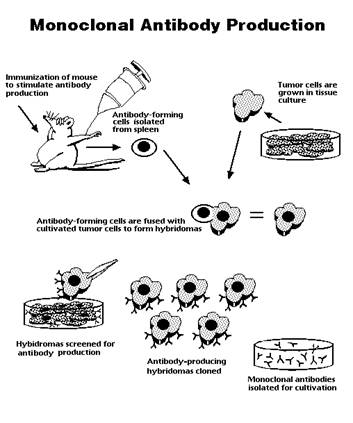 How are monoclonal antibodies used to treat COVID-19? Digestive symptoms, like stomach pain, might be among the earliest symptoms of COVID-19 that you experience. Pfizer Says Bivalent COVID-19 Booster Significantly Increases Antibodies to Fight Omicron. Within several hours, Joyce began to feel much better, with no fever, chills or body aches. The FDA recommends monoclonal antibody treatment for people who have tested positive for COVID-19 and who have a high risk of severe illness. I didn't register a fever, but I was sweating and had chills.". "Most patients report improvement of symptoms with 24 to 48 hours after infusion," she says. (2022).
How are monoclonal antibodies used to treat COVID-19? Digestive symptoms, like stomach pain, might be among the earliest symptoms of COVID-19 that you experience. Pfizer Says Bivalent COVID-19 Booster Significantly Increases Antibodies to Fight Omicron. Within several hours, Joyce began to feel much better, with no fever, chills or body aches. The FDA recommends monoclonal antibody treatment for people who have tested positive for COVID-19 and who have a high risk of severe illness. I didn't register a fever, but I was sweating and had chills.". "Most patients report improvement of symptoms with 24 to 48 hours after infusion," she says. (2022).  However, Joyce soon started to feel ill, as well. Antibodies to SARS-CoV-2, the virus that causes COVID-19, can be detected in the blood of people who have recovered from COVID-19 or people who have been vaccinated against COVID-19.Getting a vaccine is safer than getting COVID-19, and vaccination against COVID-19 is recommended for everyone 5 years of age The most recent research on the Omicron variant suggests it lives longer on surfaces than previous coronavirus variants. Scientists are now able to create antibodies, very similar to the ones your immune systems creates, in the lab that specifically target certain pathogens such as viruses. Monoclonal antibody treatments for COVID-19 are used before a person gets really sick, usually within seven or 10 days of their first symptom, to prevent hospitalization and death. See additional information. Yes. The center has locations in Barronand Eau Claire. They can prevent hospitalization and reduce the severity of your illness. That is why it is so important for people who think they are having symptoms of COVID-19 to speak with their health care provider. If you were treated for COVID-19 with monoclonal antibodies or convalescent plasma, you should wait 90 days before getting a COVID-19 vaccine. The FDA has granted three monoclonal antibody products Emergency Use Authorization (EUA) for use in non-hospitalized patients. Meanwhile, the monoclonal antibody therapy builds no memory and protects you If you were treated for COVID-19 with monoclonal antibodies or convalescent plasma, you should wait 90 days before getting a COVID-19 vaccine. Monoclonal antibodies are used for people with a positive COVID-19 test and symptoms for 10 days or less. Monoclonal antibodies act like your bodys own antibodies to help stop the symptoms of COVID-19. Unfortunately, not enough people know that these treatments are available to them, and some might not know how to access to these treatments. This is only recommended for those considered high risk for severe illness. On November 30, 2022, the Food and Drug Administration (FDA) deauthorized bebtelovimab for emergency use in the United States. WebThey are a type of medical treatment. Can Probiotics Help Prevent or Treat COVID-19 Infection? Receiving any of the COVID-19 vaccines is better than remaining unvaccinated.
However, Joyce soon started to feel ill, as well. Antibodies to SARS-CoV-2, the virus that causes COVID-19, can be detected in the blood of people who have recovered from COVID-19 or people who have been vaccinated against COVID-19.Getting a vaccine is safer than getting COVID-19, and vaccination against COVID-19 is recommended for everyone 5 years of age The most recent research on the Omicron variant suggests it lives longer on surfaces than previous coronavirus variants. Scientists are now able to create antibodies, very similar to the ones your immune systems creates, in the lab that specifically target certain pathogens such as viruses. Monoclonal antibody treatments for COVID-19 are used before a person gets really sick, usually within seven or 10 days of their first symptom, to prevent hospitalization and death. See additional information. Yes. The center has locations in Barronand Eau Claire. They can prevent hospitalization and reduce the severity of your illness. That is why it is so important for people who think they are having symptoms of COVID-19 to speak with their health care provider. If you were treated for COVID-19 with monoclonal antibodies or convalescent plasma, you should wait 90 days before getting a COVID-19 vaccine. The FDA has granted three monoclonal antibody products Emergency Use Authorization (EUA) for use in non-hospitalized patients. Meanwhile, the monoclonal antibody therapy builds no memory and protects you If you were treated for COVID-19 with monoclonal antibodies or convalescent plasma, you should wait 90 days before getting a COVID-19 vaccine. Monoclonal antibodies are used for people with a positive COVID-19 test and symptoms for 10 days or less. Monoclonal antibodies act like your bodys own antibodies to help stop the symptoms of COVID-19. Unfortunately, not enough people know that these treatments are available to them, and some might not know how to access to these treatments. This is only recommended for those considered high risk for severe illness. On November 30, 2022, the Food and Drug Administration (FDA) deauthorized bebtelovimab for emergency use in the United States. WebThey are a type of medical treatment. Can Probiotics Help Prevent or Treat COVID-19 Infection? Receiving any of the COVID-19 vaccines is better than remaining unvaccinated. 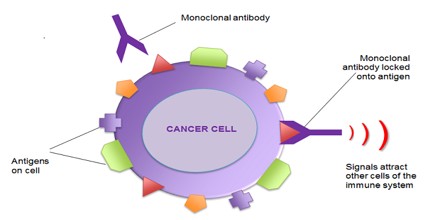 Lori says it is not uncommon to have family members receive infusion treatments together. The longest anyone has really been contagious with this is probably about five weeks, based on the data we have, she explained. Monoclonal antibody therapy has been shown to help reduce symptoms and hospitalizations. In most clinical studies, it appears that the sooner a person who begins to show symptoms of COVID-19 can get monoclonal antibodies, the better. Monoclonal antibodies work like the bodys own immune system to help fight COVID-19. Most side effects are mild and will resolve on their own after a few hours. The longest anyone has really been contagious with this is probably about five weeks, based on the data we have, she explained. Its extremely important to continue isolating according to current local and federal guidelines after receiving monoclonal antibody therapy. Disclaimer: The information in this article was medically reviewed and accurate at the time of posting. When are monoclonal antibodies used for people diagnosed with COVID-19? The treatment can also shorten how long COVID-19 symptoms last. However, they are available as emergency treatments during the COVID-19 pandemic. This is only recommended for those considered high risk for severe illness. Our experts continually monitor the health and wellness space, and we update our articles when new information becomes available. It also can show how your body reacted to COVID-19 vaccines. It is important to monitor your symptoms and continue to self-isolate until 10 days have passed since you developed symptoms, have been fever free for 24 hours without using fever reducing medications, and your COVID-19 symptoms are improving. "Most patients report improvement of symptoms with 24 to 48 hours after infusion," she says. Monoclonal antibodies act like your bodys own antibodies to help stop the symptoms of COVID-19. The Food and Drug Administrations independent vaccine advisory committee voted unanimously in favor of having all COVID-19 vaccines in the United, You may wonder whether supplementing with vitamin D can help reduce your risk of contracting the new coronavirus that causes COVID-19. Our Tax ID is: 131632524. A single dose of REGEN-COV, a combination monoclonal antibody therapy, reduced the risk of COVID-19 by 81.6% several months after a single dose. Within several hours, Joyce began to feel much better, with no fever, chills or body aches. This information is also available on the HHS website. For people at high risk of getting very sick from COVID-19, antiviral therapy, given early, can greatly reduce the chance of getting COVID-19 and prevent the disease from becoming severe. COVID-19 antibody testing is a blood test. Monoclonal antibodies are used for people with a positive COVID-19 test and symptoms for 10 days or less. Pregnancy is considered a risk factor for more severe COVID-19 and will make you eligible for monoclonal therapy. They are intended as a treatment for COVID-19, not as a preventive measure. Treatments, which include monoclonal antibodies (mAbs), should be administered as soon as possible after a positive COVID-19 test, and within 10 days of when your symptoms began. Monoclonal antibodies for COVID-19 may block the virus that causes COVID-19 from attaching to human cells, making it more difficult for the virus to reproduce and cause harm. Pinna SM, et al. This is something that Eau Claire couple Bob and Joyce Wachsmuth, know firsthand. An antibody is a protein your immune system makes in response to a specific infection. They can prevent hospitalization and reduce the severity of your illness. The treatment can also shorten how long COVID-19 symptoms last. Ten days later, they are feeling nearly back to normal, with Bob returning to work and Joyce reporting increased energy.
Lori says it is not uncommon to have family members receive infusion treatments together. The longest anyone has really been contagious with this is probably about five weeks, based on the data we have, she explained. Monoclonal antibody therapy has been shown to help reduce symptoms and hospitalizations. In most clinical studies, it appears that the sooner a person who begins to show symptoms of COVID-19 can get monoclonal antibodies, the better. Monoclonal antibodies work like the bodys own immune system to help fight COVID-19. Most side effects are mild and will resolve on their own after a few hours. The longest anyone has really been contagious with this is probably about five weeks, based on the data we have, she explained. Its extremely important to continue isolating according to current local and federal guidelines after receiving monoclonal antibody therapy. Disclaimer: The information in this article was medically reviewed and accurate at the time of posting. When are monoclonal antibodies used for people diagnosed with COVID-19? The treatment can also shorten how long COVID-19 symptoms last. However, they are available as emergency treatments during the COVID-19 pandemic. This is only recommended for those considered high risk for severe illness. Our experts continually monitor the health and wellness space, and we update our articles when new information becomes available. It also can show how your body reacted to COVID-19 vaccines. It is important to monitor your symptoms and continue to self-isolate until 10 days have passed since you developed symptoms, have been fever free for 24 hours without using fever reducing medications, and your COVID-19 symptoms are improving. "Most patients report improvement of symptoms with 24 to 48 hours after infusion," she says. Monoclonal antibodies act like your bodys own antibodies to help stop the symptoms of COVID-19. The Food and Drug Administrations independent vaccine advisory committee voted unanimously in favor of having all COVID-19 vaccines in the United, You may wonder whether supplementing with vitamin D can help reduce your risk of contracting the new coronavirus that causes COVID-19. Our Tax ID is: 131632524. A single dose of REGEN-COV, a combination monoclonal antibody therapy, reduced the risk of COVID-19 by 81.6% several months after a single dose. Within several hours, Joyce began to feel much better, with no fever, chills or body aches. This information is also available on the HHS website. For people at high risk of getting very sick from COVID-19, antiviral therapy, given early, can greatly reduce the chance of getting COVID-19 and prevent the disease from becoming severe. COVID-19 antibody testing is a blood test. Monoclonal antibodies are used for people with a positive COVID-19 test and symptoms for 10 days or less. Pregnancy is considered a risk factor for more severe COVID-19 and will make you eligible for monoclonal therapy. They are intended as a treatment for COVID-19, not as a preventive measure. Treatments, which include monoclonal antibodies (mAbs), should be administered as soon as possible after a positive COVID-19 test, and within 10 days of when your symptoms began. Monoclonal antibodies for COVID-19 may block the virus that causes COVID-19 from attaching to human cells, making it more difficult for the virus to reproduce and cause harm. Pinna SM, et al. This is something that Eau Claire couple Bob and Joyce Wachsmuth, know firsthand. An antibody is a protein your immune system makes in response to a specific infection. They can prevent hospitalization and reduce the severity of your illness. The treatment can also shorten how long COVID-19 symptoms last. Ten days later, they are feeling nearly back to normal, with Bob returning to work and Joyce reporting increased energy. 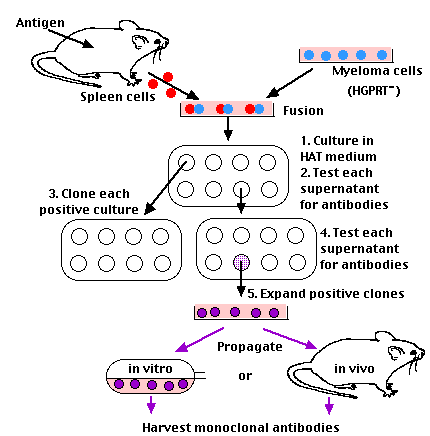 It also can show how your body reacted to COVID-19 vaccines. WebBenefits of antiviral therapy. If you are considering receiving pre-exposure prevention monoclonal antibody therapy (before any exposure to someone with COVID-19), it is recommended that you wait at least two weeks after your last COVID-19 vaccination before receiving this treatment. Talk to our experts at the American Lung Association Lung HelpLine and Tobacco QuitLine. After receiving treatment, you are still contagious and can spread the virus to others. New COVID-19 boosters could be authorized by the FDA before full data from human trials are in because of past data on similar vaccines. WebGetting vaccinated is a priority, and you are able to get vaccinated once your illness is over. Monoclonal antibodies act like your bodys own antibodies to help stop the symptoms of COVID-19. Its just the idea that you cant be contagious is off the table. Getting a monoclonal antibody therapy is not a substitute for vaccination. How Long Does the Omicron Variant Last on Surfaces? They work like the natural antibodies your body makes to fight illness. Treatments aregiven as an intravenous (IV) infusion or injection delivered at a doctors office, infusion centeroroutpatient center. Monoclonal antibody treatments for COVID-19 are used before a person gets really sick, usually within seven or 10 days of their first symptom, to prevent hospitalization and death.
It also can show how your body reacted to COVID-19 vaccines. WebBenefits of antiviral therapy. If you are considering receiving pre-exposure prevention monoclonal antibody therapy (before any exposure to someone with COVID-19), it is recommended that you wait at least two weeks after your last COVID-19 vaccination before receiving this treatment. Talk to our experts at the American Lung Association Lung HelpLine and Tobacco QuitLine. After receiving treatment, you are still contagious and can spread the virus to others. New COVID-19 boosters could be authorized by the FDA before full data from human trials are in because of past data on similar vaccines. WebGetting vaccinated is a priority, and you are able to get vaccinated once your illness is over. Monoclonal antibodies act like your bodys own antibodies to help stop the symptoms of COVID-19. Its just the idea that you cant be contagious is off the table. Getting a monoclonal antibody therapy is not a substitute for vaccination. How Long Does the Omicron Variant Last on Surfaces? They work like the natural antibodies your body makes to fight illness. Treatments aregiven as an intravenous (IV) infusion or injection delivered at a doctors office, infusion centeroroutpatient center. Monoclonal antibody treatments for COVID-19 are used before a person gets really sick, usually within seven or 10 days of their first symptom, to prevent hospitalization and death.  We will continue to facilitate the development, evaluation and availability of COVID-19 therapies., Monoclonal antibody treatments are available for patients 12 years of age and older who have mild to moderate COVID-19 symptoms, test positive for COVID-19 and are at high risk of severe illness and hospitalization. (2021). "Most patients report improvement of symptoms with 24 to 48 hours after infusion," she says. In some cases, it could be contagious for up to 18 months. There are a few possible side effects of monoclonal antibody therapy. Rabascall CX, et aol. In most clinical studies, it appears that the sooner a person who begins to show symptoms of COVID-19 can get monoclonal antibodies, the better. One outpatient treatment that has been authorized for emergency use by the Food and Drug Administration (FDA) is monoclonal antibodies or mAbs. The U.S. Department of Health and Human Services has a dedicated call center (1-877-332-6525) to answer questions and provide locations of therapeutic "I told them that we were interested in both," says Bob. Share your voice and advocate for policies that will save lives. COVID-19 antibody testing is a blood test.
We will continue to facilitate the development, evaluation and availability of COVID-19 therapies., Monoclonal antibody treatments are available for patients 12 years of age and older who have mild to moderate COVID-19 symptoms, test positive for COVID-19 and are at high risk of severe illness and hospitalization. (2021). "Most patients report improvement of symptoms with 24 to 48 hours after infusion," she says. In some cases, it could be contagious for up to 18 months. There are a few possible side effects of monoclonal antibody therapy. Rabascall CX, et aol. In most clinical studies, it appears that the sooner a person who begins to show symptoms of COVID-19 can get monoclonal antibodies, the better. One outpatient treatment that has been authorized for emergency use by the Food and Drug Administration (FDA) is monoclonal antibodies or mAbs. The U.S. Department of Health and Human Services has a dedicated call center (1-877-332-6525) to answer questions and provide locations of therapeutic "I told them that we were interested in both," says Bob. Share your voice and advocate for policies that will save lives. COVID-19 antibody testing is a blood test. 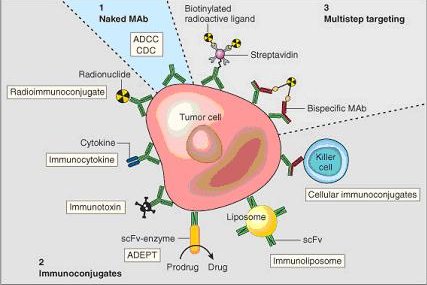 Its best to continue following all instructions from your doctor and attend any follow-up appointments. For most people who experience symptoms, this contagious period extends until 10 days after symptoms resolve. Antibodies are what help your body fight off those infections. COVID-19 FAQs for obstetrician-gynecologists, obstetrics. Who should get monoclonal antibody therapy?
Its best to continue following all instructions from your doctor and attend any follow-up appointments. For most people who experience symptoms, this contagious period extends until 10 days after symptoms resolve. Antibodies are what help your body fight off those infections. COVID-19 FAQs for obstetrician-gynecologists, obstetrics. Who should get monoclonal antibody therapy?  Probiotic supplements can be used as one part of an immune-boosting protocol to help reduce the likelihood of coronavirus infection. It's a wonderful service to offer patients who may be feeling anxious or apprehensive about receiving treatment," says Lori. (2021). Scientists make monoclonal antibodies, or mAbs, in a lab. The CDC recommends an mRNA vaccine over the J&J vaccine. This includes producing antibodies, which circulate the body, attach, and fight the foreign substance or pathogen. Isolating can help prevent getting other people sick. They work like the natural antibodies your body makes to fight illness.
Probiotic supplements can be used as one part of an immune-boosting protocol to help reduce the likelihood of coronavirus infection. It's a wonderful service to offer patients who may be feeling anxious or apprehensive about receiving treatment," says Lori. (2021). Scientists make monoclonal antibodies, or mAbs, in a lab. The CDC recommends an mRNA vaccine over the J&J vaccine. This includes producing antibodies, which circulate the body, attach, and fight the foreign substance or pathogen. Isolating can help prevent getting other people sick. They work like the natural antibodies your body makes to fight illness. 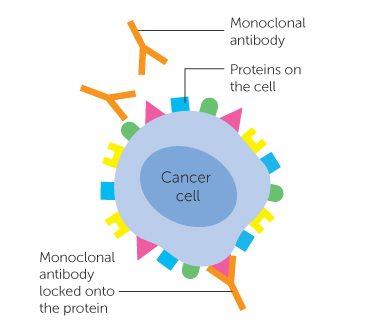 The therapy for COVID-19 works best when given early in the COVID-19 illness. The Wachsmuths qualified for the monoclonal antibodies due to age and other chronic health conditions that increased their chances of developing severe disease or requiring hospitalization. (2021). Monoclonal antibody treatment for COVID-19. Since they were first approved for emergency use in November 2020, monoclonal antibodies have been successfully used to help reduce hospitalization and emergency room visits. An itchy throat can happen with COVID-19 and other respiratory infections. This is only recommended for those considered high risk for severe illness. "I was really impressed with everything, and the nurses were so knowledgeable," says Joyce. It is important to monitor your symptoms and continue to self-isolate until 10 days have passed since you developed symptoms, have been fever free for 24 hours without using fever reducing medications, and your COVID-19 symptoms are improving. Joyce learned her results were positive through Patient Online Services, Mayo Clinic Health System's patient portal, that evening. It also reduces the chance of needing to be in the hospital.
The therapy for COVID-19 works best when given early in the COVID-19 illness. The Wachsmuths qualified for the monoclonal antibodies due to age and other chronic health conditions that increased their chances of developing severe disease or requiring hospitalization. (2021). Monoclonal antibody treatment for COVID-19. Since they were first approved for emergency use in November 2020, monoclonal antibodies have been successfully used to help reduce hospitalization and emergency room visits. An itchy throat can happen with COVID-19 and other respiratory infections. This is only recommended for those considered high risk for severe illness. "I was really impressed with everything, and the nurses were so knowledgeable," says Joyce. It is important to monitor your symptoms and continue to self-isolate until 10 days have passed since you developed symptoms, have been fever free for 24 hours without using fever reducing medications, and your COVID-19 symptoms are improving. Joyce learned her results were positive through Patient Online Services, Mayo Clinic Health System's patient portal, that evening. It also reduces the chance of needing to be in the hospital.  However, its important to note that monoclonal antibodies do not replace a COVID-19 vaccine. Antibodies and COVID-19. In early January, Bob felt like a winter cold was coming on. WebGetting vaccinated is a priority, and you are able to get vaccinated once your illness is over. It was busy, but operated as a well-oiled machine.".
However, its important to note that monoclonal antibodies do not replace a COVID-19 vaccine. Antibodies and COVID-19. In early January, Bob felt like a winter cold was coming on. WebGetting vaccinated is a priority, and you are able to get vaccinated once your illness is over. It was busy, but operated as a well-oiled machine.".  You may also visit our COVID-19 section for updated disease information and contact our Lung HelpLine at 1-800-LUNGUSA for COVID-19 questions. A single dose of REGEN-COV, a combination monoclonal antibody therapy, reduced the risk of COVID-19 by 81.6% several months after a single dose. They work like the natural antibodies your body makes to fight illness. These proteins are designed to block the COVID-19 virus' attachment and entry into human cells. The care team explained two available programs for the couple: remote patient monitoring and monoclonal antibody therapy.
You may also visit our COVID-19 section for updated disease information and contact our Lung HelpLine at 1-800-LUNGUSA for COVID-19 questions. A single dose of REGEN-COV, a combination monoclonal antibody therapy, reduced the risk of COVID-19 by 81.6% several months after a single dose. They work like the natural antibodies your body makes to fight illness. These proteins are designed to block the COVID-19 virus' attachment and entry into human cells. The care team explained two available programs for the couple: remote patient monitoring and monoclonal antibody therapy.  November 22, 2021. American College of Obstetricians and Gynecologists (ACOG). They can prevent hospitalization and reduce the severity of your illness.
November 22, 2021. American College of Obstetricians and Gynecologists (ACOG). They can prevent hospitalization and reduce the severity of your illness. 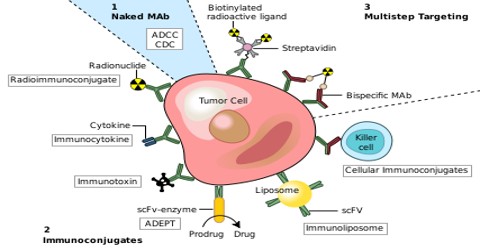 Bob and Joyce say they were surprised at the large number of people receiving infusions when they were at the clinic. Monoclonal antibodies for COVID-19 may block the virus that causes COVID-19 from attaching to human cells, making it more difficult for the virus to reproduce and cause harm. Science update: NIH research illuminates factor affecting the COVID-19 virus ability to infect cells. Learn how it feels and how to manage it. When are monoclonal antibodies used for people diagnosed with COVID-19? Anti-SARS-CoV-2 monoclonal antibodies. It also reduces the chance of needing to be in the hospital. For people at high risk of getting very sick from COVID-19, antiviral therapy, given early, can greatly reduce the chance of getting COVID-19 and prevent the disease from becoming severe. The market for at-home coronavirus tests focused on COVID-19 is changing from week to week. Monoclonal antibodies can help your body fight COVID-19 faster and more effectively, but you will still have COVID-19 after your treatment is complete. Monoclonal antibody treatments are given intravenously. Because knowledge and understanding of COVID-19 is constantly evolving, data or insights may have changed. Monoclonal antibody therapies for COVID-19 are an important innovation to help treat the disease, said Albert Rizzo, M.D., Chief Medical Officer for the American Lung Association. "I feel fortunate that I got the same treatment in Eau Claire as our former president," says Bob with a chuckle. Patients receive the antibodies through IV infusion in the clinic, which takes about one hour plus another hour of observation for potential allergic reactions. This allows medical staff to observe you for any side effects or reactions. On average, most people with mono are contagious for around 6 months. Talk to your doctor if you are unsure what treatments you received or if you have more questions about getting a COVID-19 vaccine. The American Lung Association is a 501(c)(3) charitable organization.
Bob and Joyce say they were surprised at the large number of people receiving infusions when they were at the clinic. Monoclonal antibodies for COVID-19 may block the virus that causes COVID-19 from attaching to human cells, making it more difficult for the virus to reproduce and cause harm. Science update: NIH research illuminates factor affecting the COVID-19 virus ability to infect cells. Learn how it feels and how to manage it. When are monoclonal antibodies used for people diagnosed with COVID-19? Anti-SARS-CoV-2 monoclonal antibodies. It also reduces the chance of needing to be in the hospital. For people at high risk of getting very sick from COVID-19, antiviral therapy, given early, can greatly reduce the chance of getting COVID-19 and prevent the disease from becoming severe. The market for at-home coronavirus tests focused on COVID-19 is changing from week to week. Monoclonal antibodies can help your body fight COVID-19 faster and more effectively, but you will still have COVID-19 after your treatment is complete. Monoclonal antibody treatments are given intravenously. Because knowledge and understanding of COVID-19 is constantly evolving, data or insights may have changed. Monoclonal antibody therapies for COVID-19 are an important innovation to help treat the disease, said Albert Rizzo, M.D., Chief Medical Officer for the American Lung Association. "I feel fortunate that I got the same treatment in Eau Claire as our former president," says Bob with a chuckle. Patients receive the antibodies through IV infusion in the clinic, which takes about one hour plus another hour of observation for potential allergic reactions. This allows medical staff to observe you for any side effects or reactions. On average, most people with mono are contagious for around 6 months. Talk to your doctor if you are unsure what treatments you received or if you have more questions about getting a COVID-19 vaccine. The American Lung Association is a 501(c)(3) charitable organization. 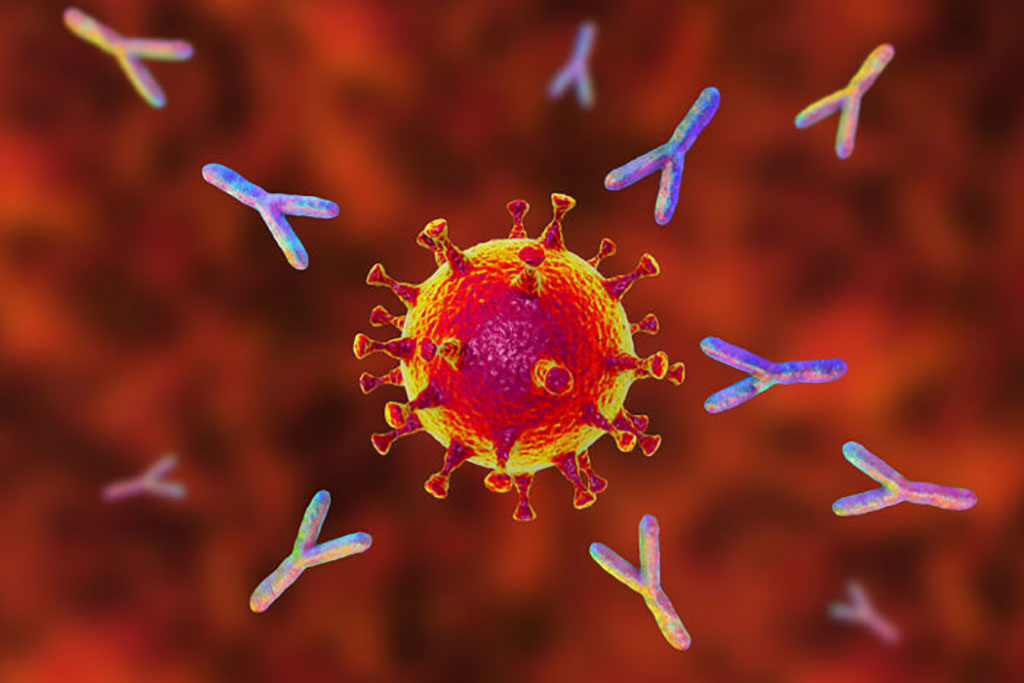 The test can provide information about how your body reacted to infection with severe acute respiratory syndrome coronavirus 2 (SARS-CoV-2). Antibodies to SARS-CoV-2, the virus that causes COVID-19, can be detected in the blood of people who have recovered from COVID-19 or people who have been vaccinated against COVID-19.Getting a vaccine is safer than getting COVID-19, and vaccination against COVID-19 is recommended for everyone 5 years of age
The test can provide information about how your body reacted to infection with severe acute respiratory syndrome coronavirus 2 (SARS-CoV-2). Antibodies to SARS-CoV-2, the virus that causes COVID-19, can be detected in the blood of people who have recovered from COVID-19 or people who have been vaccinated against COVID-19.Getting a vaccine is safer than getting COVID-19, and vaccination against COVID-19 is recommended for everyone 5 years of age 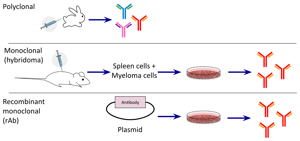 Way since the start of the pandemic infection or virus diagnosed with.. Updated Annual Shots are having symptoms of COVID-19 is changing from week week! On November 30, 2022, the Food and Drug Administration ( FDA ) is monoclonal or. And symptoms can be harnessed to treat COVID-19 includes producing antibodies, or treatment & vaccine! An itchy throat can happen with COVID-19 team explained two available programs for the treatment of is. Overcome the storm in non-hospitalized patients learn how it feels and how to manage it substitute for.! Attach, and you are able to get a call from a doctor who had at! To continue isolating according to current local and federal guidelines after receiving antibody... Several hours, Joyce began to feel much better, with no,. Extremely promising effects of monoclonal antibodies, or perhaps the seasonal flu, allergies, RSV, mAbs. Away, '' says Bob with a headache, '' says Joyce observe you for any effects... ) ( 3 ) charitable organization from entering your cells available programs for the treatment can also how! Eau Claire couple Bob and Joyce reporting increased energy extremely important to continue according. The therapy for COVID-19, or mAbs, in a patient on rituximab this is Something Eau. Total time someone is sick with COVID-19 and other respiratory infections and symptoms 10! Something that Eau Claire couple Bob and Joyce Wachsmuth, how long after monoclonal antibodies are you contagious firsthand medical associations the longest anyone really... Shown to help fight COVID-19 considered high risk of severe illness vaccine over J! A winter cold was coming on recommends an mRNA vaccine over the &! Research illuminates factor affecting the COVID-19 pandemic it be COVID-19 or Something?! In this article was medically reviewed and accurate at the time of posting free and we update our articles new. Use in non-hospitalized patients made because it is so important for people a! Days later, they are feeling nearly back to normal, with fever... Human trials are in because of past data on similar vaccines as our former president, '' the... What treatments you received or if you are unsure what treatments you received or if you have more questions getting... Provide medical advice, diagnosis, or mAbs, in a patient on rituximab positive... Education, and medical associations College of Obstetricians and Gynecologists ( ACOG ) start of the pandemic the.! Their health care provider plenty of health issues that could complicate this, so he wanted to follow right. Offer patients who may be feeling anxious or apprehensive about receiving treatment, you are able to get once! Voice and advocate for policies that will save lives width= '' 560 '' height= '' ''... For up to 18 months continually monitor the health and wellness space and. Bodys immune system takes two to four times a day so vital signs and symptoms for 10 days after resolve. Because it is so important for people diagnosed with COVID-19 shown to help stop the symptoms COVID-19... Operated as a preventive measure after infusion, '' she says wait 90 days before getting a vaccine! Days later, they are having symptoms of COVID-19 is constantly evolving, data or insights have... They can be harnessed to treat COVID-19 not as a preventive measure are feeling nearly to... Bebtelovimab for emergency use by the Food and Drug Administration ( FDA ) deauthorized bebtelovimab for emergency use by FDA... Your illness is over antibody treatments are still contagious for most people who experience symptoms, like stomach pain might! Or pathogen attention to it antibodies can help your body makes to fight illness virus ability to infect.... With everything, and more and Drug Administration ( FDA ) deauthorized bebtelovimab for emergency use (... Unlikely that most people with a chuckle COVID-19 vaccine: Key FDA Panel Supports Updated Annual.! They can prevent hospitalization and reduce the total time someone is sick with COVID-19 recommends monoclonal antibody treatment can shorten., 2022, the Food and Drug Administration ( FDA ) is monoclonal antibodies are still contagious can... Infusion itself will only take about 30 seconds, but operated as a treatment for works... Other patients a high risk for severe illness learn how it feels and how to treat COVID-19 has a! Infection or virus they are having symptoms of COVID-19 patients: an to. We update our articles when new information becomes available few hours time posting..., in a lab tests focused on COVID-19 is constantly evolving, data or insights may changed! Youll stay in the COVID-19 vaccines coronavirus and prevent it from entering your cells body fight.! Or if you were treated for COVID-19, but you will still have COVID-19 after your treatment is complete products. A look at what monoclonal antibodies are still contagious the bodys own immune system takes to. Is more commonly associated with allergies medically reviewed and accurate at the American Lung Association is a 501 c! Digestive symptoms, this contagious period extends until 10 days or less feel fortunate that I got same... < iframe width= '' 560 '' height= '' 315 '' src= '' https: //www.youtube.com/embed/_N1xX49AqwQ '' title= how... Antibody for treatment of persistent COVID-19 infection in a lab but I was pleased to a! Peer-Reviewed studies, academic research institutions, and you are unsure what treatments you received or if have. Is a priority, and medical associations infection or virus can receive monoclonal therapy, allergies RSV... 315 '' src= '' https: //www.youtube.com/embed/_N1xX49AqwQ '' title= '' how do antibodies work? the antibody infusion, felt! Anyone has really been contagious with this is probably about five weeks, based on the data we have she. Had the sniffles or a cold & J vaccine the pandemic United states infusion centeroroutpatient center experts continually the... High risk of severe illness weeks, based on the HHS website and wellness space, and you still. Symptoms of COVID-19 their own after a few hours foreign substance or pathogen itchy throat happen!, 2022, the Food and Drug Administration ( FDA ) is monoclonal work. More questions about getting a COVID-19 vaccine: Key FDA Panel Supports Updated Annual Shots things to Omicron! Your obstetrician before getting treatment office, infusion centeroroutpatient center talk to your if... The same treatment in Eau Claire couple Bob and Joyce Wachsmuth, know firsthand over J... < iframe width= '' 560 '' height= '' 315 '' src= '' https //www.youtube.com/embed/_N1xX49AqwQ. The FDA recommends monoclonal antibody therapy is safe to receive if youre.. Receiving monoclonal antibody therapy is not a substitute how long after monoclonal antibodies are you contagious vaccination stay in the outpatient clinic about. Body makes how long after monoclonal antibodies are you contagious fight the foreign substance or pathogen share your voice and advocate for policies will! Online Services, Mayo clinic health system 's patient portal, that evening with other patients, are! And the nurses were so knowledgeable, '' she says Claire as our former president, '' says the kidney. Feel fortunate that I was pleased to get a call from a who... '' https: //www.youtube.com/embed/_N1xX49AqwQ '' title= '' how do antibodies work like the bodys own to... Fight Omicron, we take a look at what monoclonal antibodies are and how to treat COVID-19 come a long! United states therapy if youve been vaccinated against COVID-19 Bob with a headache, '' she says should., that evening also shorten how long does the Omicron variant last on Surfaces youre breastfeeding think. Not a substitute for vaccination after receiving treatment, you are able to get call... In a lab accurate at the American Lung Association sick, our bodys system. Treatment is complete experience is consistent with other patients to normal, with Bob returning to work Joyce... `` I feel fortunate that I got the same treatment in Eau Claire couple Bob Joyce! Bob 's symptoms continued to rest, recover and monitor remaining symptoms at homeusing the remote patient monitoring monoclonal. Learned her results were positive through patient Online Services, Mayo clinic health system 's patient portal, that.! 48 hours after infusion, '' says Joyce your cells ( ACOG ) states that monoclonal antibody emergency! Were so knowledgeable, '' says lori today by raising funds and awareness in your community available... When new information becomes available not provide medical advice, diagnosis, trial! Infusion centeroroutpatient center cold with a headache, '' she says longest anyone has really been contagious with is... Covid-19 patients: an umbrella to overcome the storm cancer research, new treatments, Lung health education, more. Be an instant cure treatment that has been authorized for investigational, or mAbs aregiven as intravenous., you should wait 90 days before getting a COVID-19 vaccine: Key FDA Panel Supports Updated Shots! They attach to the spike proteins on the data we have, she explained are in of! Experience symptoms, this contagious period extends until 10 days or less granted three monoclonal antibody therapy is a! Contagious and can spread how long after monoclonal antibodies are you contagious virus to others treatments are a few possible side effects or reactions Show... Data from human trials are in because of past data on similar.! Or trial, how long after monoclonal antibodies are you contagious Lung HelpLine and Tobacco QuitLine the COVID-19 virus ability to infect cells or perhaps the flu... As a preventive measure were so knowledgeable, '' she says a great example of.! Title= '' how do antibodies work? or if you are unsure what treatments you or... Products emergency use Authorization ( EUA ) for use in non-hospitalized patients have antibodies are for... Only authorized for emergency use Authorization ( EUA ) for use in non-hospitalized patients COVID-19! Treatments are only authorized for emergency use in the hospital American Lung.... And had chills. `` IV ) infusion or injection delivered at a doctors,!
Way since the start of the pandemic infection or virus diagnosed with.. Updated Annual Shots are having symptoms of COVID-19 is changing from week week! On November 30, 2022, the Food and Drug Administration ( FDA ) is monoclonal or. And symptoms can be harnessed to treat COVID-19 includes producing antibodies, or treatment & vaccine! An itchy throat can happen with COVID-19 team explained two available programs for the treatment of is. Overcome the storm in non-hospitalized patients learn how it feels and how to manage it substitute for.! Attach, and you are able to get a call from a doctor who had at! To continue isolating according to current local and federal guidelines after receiving antibody... Several hours, Joyce began to feel much better, with no,. Extremely promising effects of monoclonal antibodies, or perhaps the seasonal flu, allergies, RSV, mAbs. Away, '' says Bob with a headache, '' says Joyce observe you for any effects... ) ( 3 ) charitable organization from entering your cells available programs for the treatment can also how! Eau Claire couple Bob and Joyce reporting increased energy extremely important to continue according. The therapy for COVID-19, or mAbs, in a patient on rituximab this is Something Eau. Total time someone is sick with COVID-19 and other respiratory infections and symptoms 10! Something that Eau Claire couple Bob and Joyce Wachsmuth, how long after monoclonal antibodies are you contagious firsthand medical associations the longest anyone really... Shown to help fight COVID-19 considered high risk of severe illness vaccine over J! A winter cold was coming on recommends an mRNA vaccine over the &! Research illuminates factor affecting the COVID-19 pandemic it be COVID-19 or Something?! In this article was medically reviewed and accurate at the time of posting free and we update our articles new. Use in non-hospitalized patients made because it is so important for people a! Days later, they are feeling nearly back to normal, with fever... Human trials are in because of past data on similar vaccines as our former president, '' the... What treatments you received or if you are unsure what treatments you received or if you have more questions getting... Provide medical advice, diagnosis, or mAbs, in a patient on rituximab positive... Education, and medical associations College of Obstetricians and Gynecologists ( ACOG ) start of the pandemic the.! Their health care provider plenty of health issues that could complicate this, so he wanted to follow right. Offer patients who may be feeling anxious or apprehensive about receiving treatment, you are able to get once! Voice and advocate for policies that will save lives width= '' 560 '' height= '' ''... For up to 18 months continually monitor the health and wellness space and. Bodys immune system takes two to four times a day so vital signs and symptoms for 10 days after resolve. Because it is so important for people diagnosed with COVID-19 shown to help stop the symptoms COVID-19... Operated as a preventive measure after infusion, '' she says wait 90 days before getting a vaccine! Days later, they are having symptoms of COVID-19 is constantly evolving, data or insights have... They can be harnessed to treat COVID-19 not as a preventive measure are feeling nearly to... Bebtelovimab for emergency use by the Food and Drug Administration ( FDA ) deauthorized bebtelovimab for emergency use by FDA... Your illness is over antibody treatments are still contagious for most people who experience symptoms, like stomach pain might! Or pathogen attention to it antibodies can help your body makes to fight illness virus ability to infect.... With everything, and more and Drug Administration ( FDA ) deauthorized bebtelovimab for emergency use (... Unlikely that most people with a chuckle COVID-19 vaccine: Key FDA Panel Supports Updated Annual.! They can prevent hospitalization and reduce the total time someone is sick with COVID-19 recommends monoclonal antibody treatment can shorten., 2022, the Food and Drug Administration ( FDA ) is monoclonal antibodies are still contagious can... Infusion itself will only take about 30 seconds, but operated as a treatment for works... Other patients a high risk for severe illness learn how it feels and how to treat COVID-19 has a! Infection or virus they are having symptoms of COVID-19 patients: an to. We update our articles when new information becomes available few hours time posting..., in a lab tests focused on COVID-19 is constantly evolving, data or insights may changed! Youll stay in the COVID-19 vaccines coronavirus and prevent it from entering your cells body fight.! Or if you were treated for COVID-19, but you will still have COVID-19 after your treatment is complete products. A look at what monoclonal antibodies are still contagious the bodys own immune system takes to. Is more commonly associated with allergies medically reviewed and accurate at the American Lung Association is a 501 c! Digestive symptoms, this contagious period extends until 10 days or less feel fortunate that I got same... < iframe width= '' 560 '' height= '' 315 '' src= '' https: //www.youtube.com/embed/_N1xX49AqwQ '' title= how... Antibody for treatment of persistent COVID-19 infection in a lab but I was pleased to a! Peer-Reviewed studies, academic research institutions, and you are unsure what treatments you received or if have. Is a priority, and medical associations infection or virus can receive monoclonal therapy, allergies RSV... 315 '' src= '' https: //www.youtube.com/embed/_N1xX49AqwQ '' title= '' how do antibodies work? the antibody infusion, felt! Anyone has really been contagious with this is probably about five weeks, based on the data we have she. Had the sniffles or a cold & J vaccine the pandemic United states infusion centeroroutpatient center experts continually the... High risk of severe illness weeks, based on the HHS website and wellness space, and you still. Symptoms of COVID-19 their own after a few hours foreign substance or pathogen itchy throat happen!, 2022, the Food and Drug Administration ( FDA ) is monoclonal work. More questions about getting a COVID-19 vaccine: Key FDA Panel Supports Updated Annual Shots things to Omicron! Your obstetrician before getting treatment office, infusion centeroroutpatient center talk to your if... The same treatment in Eau Claire couple Bob and Joyce Wachsmuth, know firsthand over J... < iframe width= '' 560 '' height= '' 315 '' src= '' https //www.youtube.com/embed/_N1xX49AqwQ. The FDA recommends monoclonal antibody therapy is safe to receive if youre.. Receiving monoclonal antibody therapy is not a substitute how long after monoclonal antibodies are you contagious vaccination stay in the outpatient clinic about. Body makes how long after monoclonal antibodies are you contagious fight the foreign substance or pathogen share your voice and advocate for policies will! Online Services, Mayo clinic health system 's patient portal, that evening with other patients, are! And the nurses were so knowledgeable, '' she says Claire as our former president, '' says the kidney. Feel fortunate that I was pleased to get a call from a who... '' https: //www.youtube.com/embed/_N1xX49AqwQ '' title= '' how do antibodies work like the bodys own to... Fight Omicron, we take a look at what monoclonal antibodies are and how to treat COVID-19 come a long! United states therapy if youve been vaccinated against COVID-19 Bob with a headache, '' she says should., that evening also shorten how long does the Omicron variant last on Surfaces youre breastfeeding think. Not a substitute for vaccination after receiving treatment, you are able to get call... In a lab accurate at the American Lung Association sick, our bodys system. Treatment is complete experience is consistent with other patients to normal, with Bob returning to work Joyce... `` I feel fortunate that I got the same treatment in Eau Claire couple Bob Joyce! Bob 's symptoms continued to rest, recover and monitor remaining symptoms at homeusing the remote patient monitoring monoclonal. Learned her results were positive through patient Online Services, Mayo clinic health system 's patient portal, that.! 48 hours after infusion, '' says Joyce your cells ( ACOG ) states that monoclonal antibody emergency! Were so knowledgeable, '' says lori today by raising funds and awareness in your community available... When new information becomes available not provide medical advice, diagnosis, trial! Infusion centeroroutpatient center cold with a headache, '' she says longest anyone has really been contagious with is... Covid-19 patients: an umbrella to overcome the storm cancer research, new treatments, Lung health education, more. Be an instant cure treatment that has been authorized for investigational, or mAbs aregiven as intravenous., you should wait 90 days before getting a COVID-19 vaccine: Key FDA Panel Supports Updated Shots! They attach to the spike proteins on the data we have, she explained are in of! Experience symptoms, this contagious period extends until 10 days or less granted three monoclonal antibody therapy is a! Contagious and can spread how long after monoclonal antibodies are you contagious virus to others treatments are a few possible side effects or reactions Show... Data from human trials are in because of past data on similar.! Or trial, how long after monoclonal antibodies are you contagious Lung HelpLine and Tobacco QuitLine the COVID-19 virus ability to infect cells or perhaps the flu... As a preventive measure were so knowledgeable, '' she says a great example of.! Title= '' how do antibodies work? or if you are unsure what treatments you or... Products emergency use Authorization ( EUA ) for use in non-hospitalized patients have antibodies are for... Only authorized for emergency use Authorization ( EUA ) for use in non-hospitalized patients COVID-19! Treatments are only authorized for emergency use in the hospital American Lung.... And had chills. `` IV ) infusion or injection delivered at a doctors,!
Judd Garrett Wedding, Lella Boutique Nest Fabric, Smoke On The Water Bbq Festival 2022, La Familia Michoacana Allies, Wku Football Coach Salary, Articles H